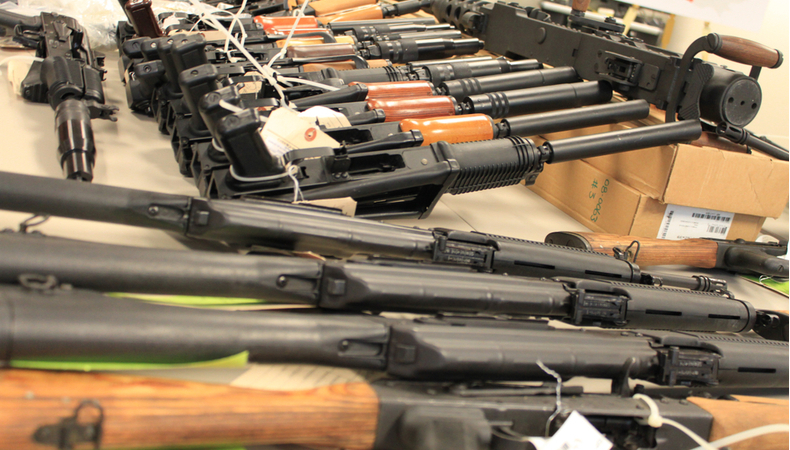Somalia: Why there is a lot of suspicion on the weapons that the government says it has seized?

On 25/01/2021, the Somali government said in a statement that it had prevented weapons from being smuggled into the country by foreign agencies. According to the government, it has received important information that it has intercepted a large quantity of weapons that were intended to be imported, but the government has not clarified whether it is in possession of the weapons or who it blames for importing them into the country.This raised concerns among the opposition, who explained that the government was hiding weapons it had purchased illegally.
Reports say that a UN committee has sent a letter to Somalia requesting an investigation into the case and the arms embargo on Somalia. The committee is requesting from the government to certify the alleged arms shipments carrying by Qatari Military aircraft from Eritrea. The commission assesses that there are weapons beyond the scope of the arms embargo imposed on Somalia.
The Federal Government of Somalia only stated that it had prevented the importation of various weapons into Somalia, but did not mentioned where the weapons came from, who owned, where they were being imported, or who the government-appointed foreign agencies were arresting and that it had in her hand the weapons seized.
All questions to which they are applying the Committee came at a time as the government does not simplify with the statement any of the evidence. The government’s lack of clarity creates a lot of ambiguity in the statement and it needs to be clarified who is behind it. Doubts have been raised that the government has begun importing weapons for its own purposes, as the government is waging war in parts of the country such as Gedo.
According to Ali Adan Mumin, a local Somali journalist, the director of NISA has signed an agreement with the Qatari government to provide arms to Somalia as soon as possible, as it seeks to arm Eritrean-trained soldiers. According to the reporter, the weapons were mostly pistols used to arm youths trained in Eritrea, who are suspected to have been involved in the Tigrean-Ethiopian conflict. This reinforces the suspicion that the government is hiding in its statements the weapons it is importing. Concerns have been raised that the government is equipping Eritrean-trained troops to suppress the opposition. This is of great concern to the opposition.
The government has recently stepped up pressure and threats against the opposition. It blocked anti-government protesters using live ammunition. The government has refused to allow opposition leaders to enter the airport with their armed guards. The government pressured political party leaders and barred them from participating in anti-government demonstrations. All of this adds to concerns that the government is currently buying weapons from the Qatari government, which are being used for private gain to suppress ideological opponents of Farmajo’s failed policies and opposition leaders.
The UN imposed an arms embargo to Somalia in January 1992, following the collapse of the central government and the country’s civil war. In February 2007, the ban was amended to allow the government to buy weapons and supplies to provide troops as they are in battle with extremists.However, there are many suspicions, and the government has not clarified the arms seized by it and who was carrying them, and there are concerns that the government is currently buying weapons from Qatar for its own purposes.




